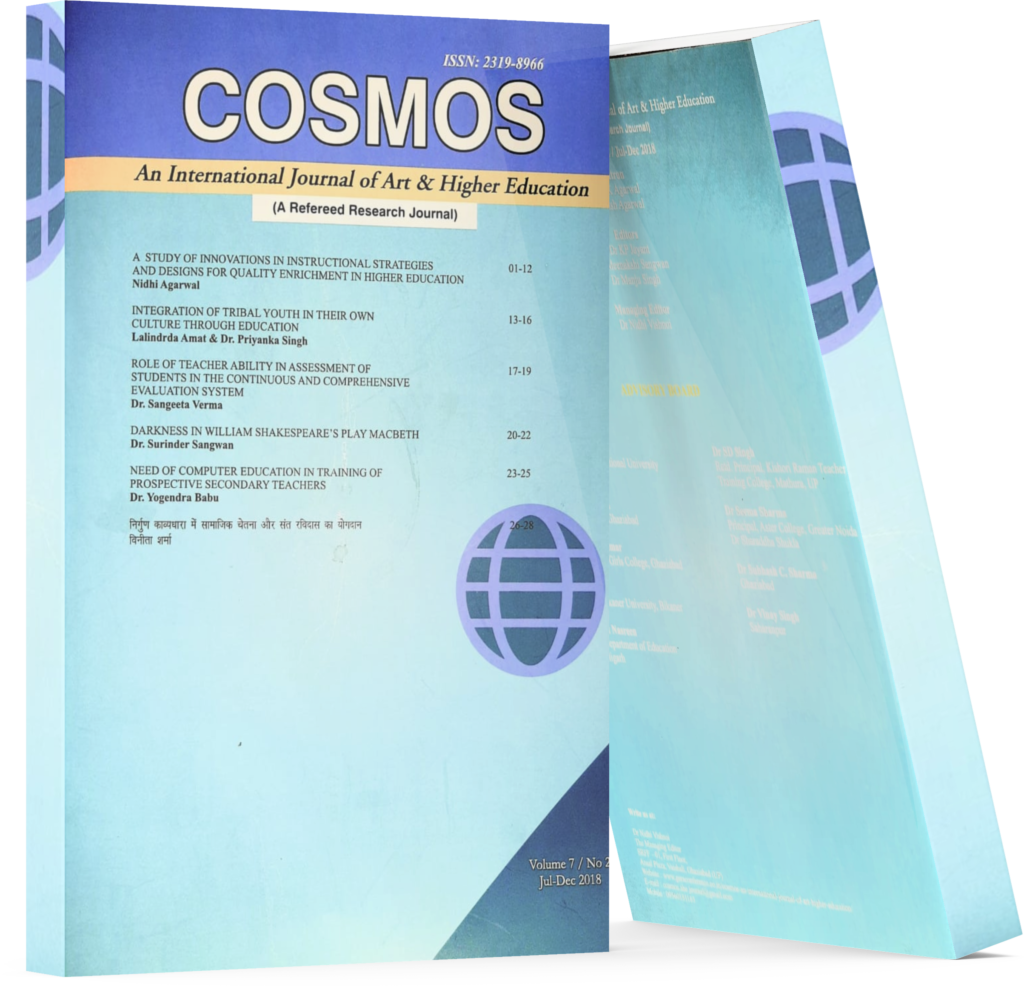Human Rights As A Need Of Indian Society
Keywords:
Social Group, Need, Society, Human Rights, FundamentalAbstract
Any civilization must uphold human rights in order to run smoothly and guarantee that everyone is treated justly and fairly. Given the prevalence of problems like caste discrimination, gender inequality, and poverty in India, there is an increasing need for human rights preservation and promotion. Various caste and religious groups coexist in India's complicated socioeconomic framework. Unfortunately, caste, gender, religious, and ethnic prejudice still exists in many areas of India. Denying someone access to opportunities for job, education, or healthcare is one form of discrimination that can occur. India encounters a number of difficulties with regard to access to fundamental essentials including clean water, sanitary facilities, and healthcare in addition to prejudice. In India, a large number of individuals experience daily hardships that may result in a violation of their fundamental human rights.
Downloads
References
Singh, Ruchika (2015). Intra-party democracy and Indian political parties. Journal of Challenges of Democracy in India, 13(3), 7-12.
Mathias Koenig Archibugi (2014). Is global democracy possible? European Journal of International Relations, 22(3), 21-29.
Sood, Sameer and Gupta, Dr. Pankaj (2017). Social Compliance for Garment Factories. Globus An International Journal of Management & IT, 9(1), 1-3.
Sharma, Santosh Kumar and Garg, Dr. Bhawna (2017). Global Economic Meltdown by Considering New Dimensions. Globus An International Journal of Management & IT, 9(1), 1-3.
Kumar, Amit and Barwal, Satveer S. (2013). Strategy of Planning Commission Regarding Elementary Education and Literacy During Five Year Plans. Globus
Journal of Progressive Education, 3(1), 1- 6.
Pradhan, Dr. Anup (2018). Problems Facing Indian Economy. Cosmos An International Journal of Art & Higher Education, 7(1), 12-15.
Agarwal, Nidhi and Mishra, Sugam, (2010). Impact of Foreign Direct Investment in Indian Economy. IIMT Souvenir National Conference on Challenges for Organizations in Dynamic Business Environment, 8-9.
Kumar Puneet, (2003). Impact of Education on Consumer Behavior with Social Change. Indian MBA.Com, 22 December, 2003.
Rani, Priyanka and Agarwal, Dr. Nidhi (2015). Thinking Styles: An Overview. Cosmos An International Journal of Art & Higher Education, 4(2), 1-3.
Punam, Dr. Rashmi Tiwari (2018). Indian Democracy: A Study. Globus An International Journal of Management & IT, 9(2), 1-4.
Parasher, Dheeraj (2014). A Study on Society and Culture. Globus Journal of Progressive Education, 4(1), 1-3.
Agarwal, Nidhi and Kumar, Puneet and Mishra, Sugam, (2010). Need to Acquire Democratic Competency by Teacher Educator in Global Scenario. Maa Omwati Journal of Education Research & Development. 1(1), 0976-1365.
Amat, Lalindrda and Singh, Dr. Priyanka (2018). Integration of Tribal Youth in Their Own Culture Through Education. Cosmos An International Journal of Art & Higher Education, 7(2), 13-16.
Kumar, Anshu (2016). A Study on The Social Construction of Intelligence and Academic Ability. Globus Journal of Progressive Education, 6(1), 1-3.
Yadav, Ankit and Dwivedi, Dr. P.K. (2016). Model Based on the Utilization of Utilitarian Documentation. Cosmos An International Journal of Management, 5(2), 1-3.

